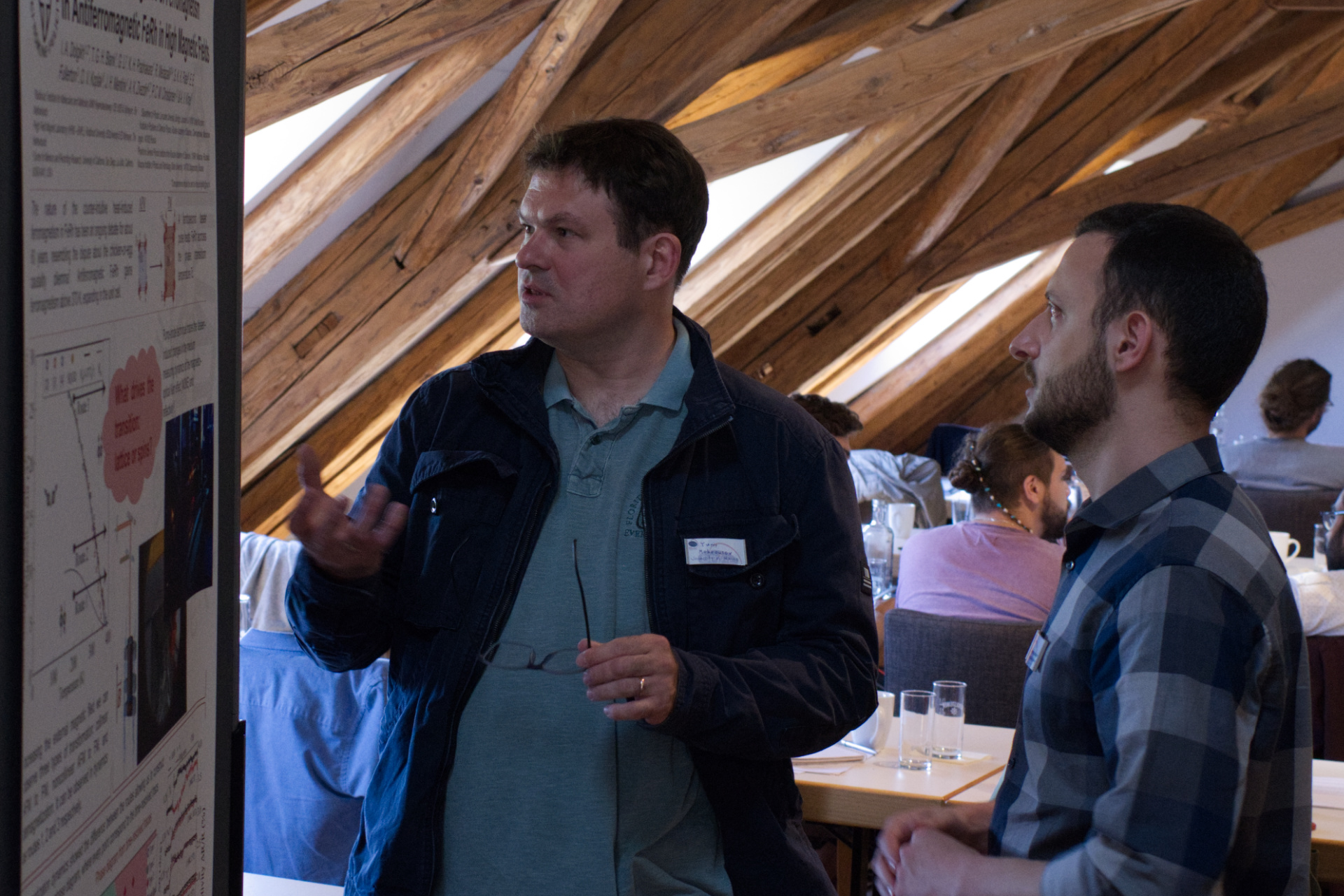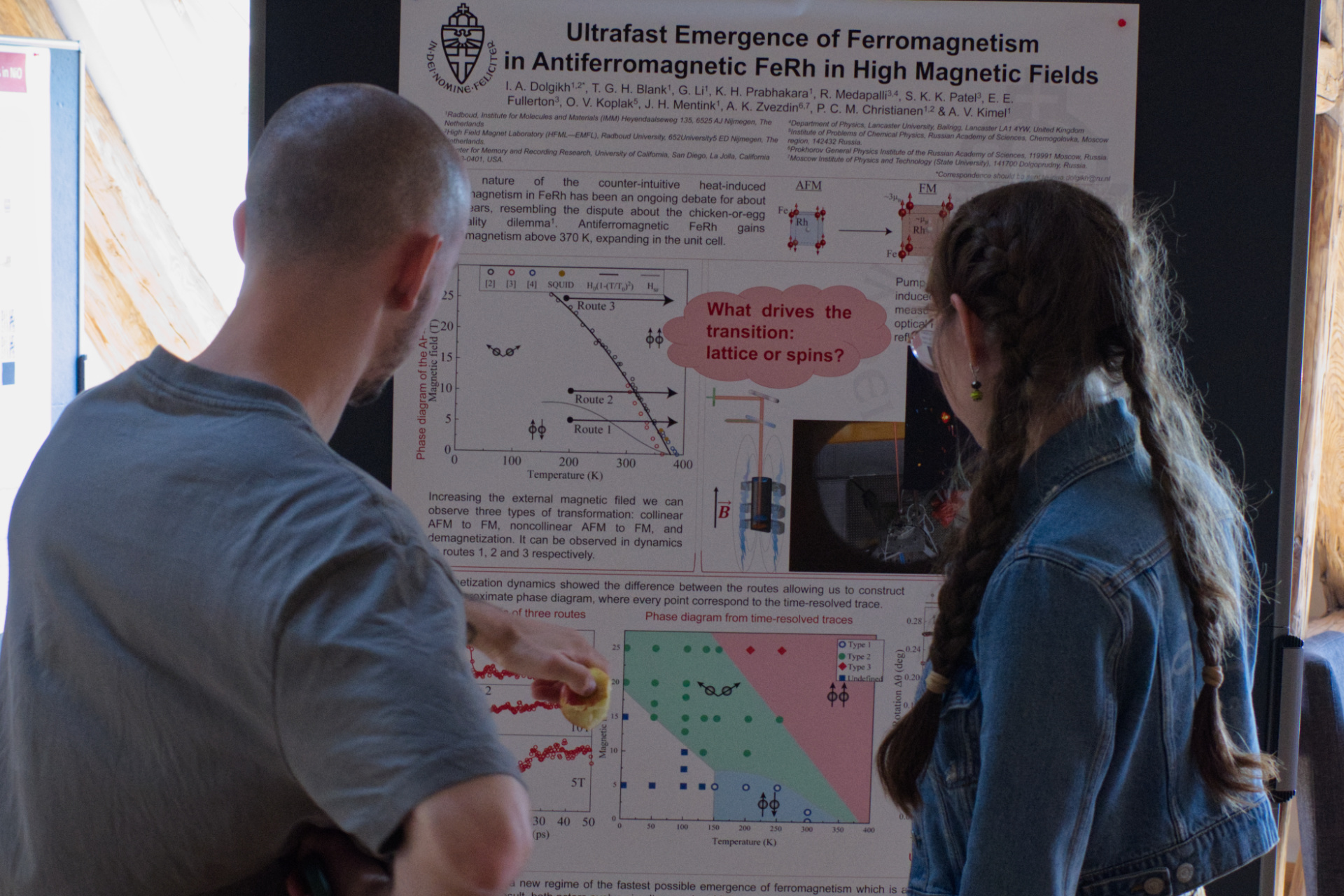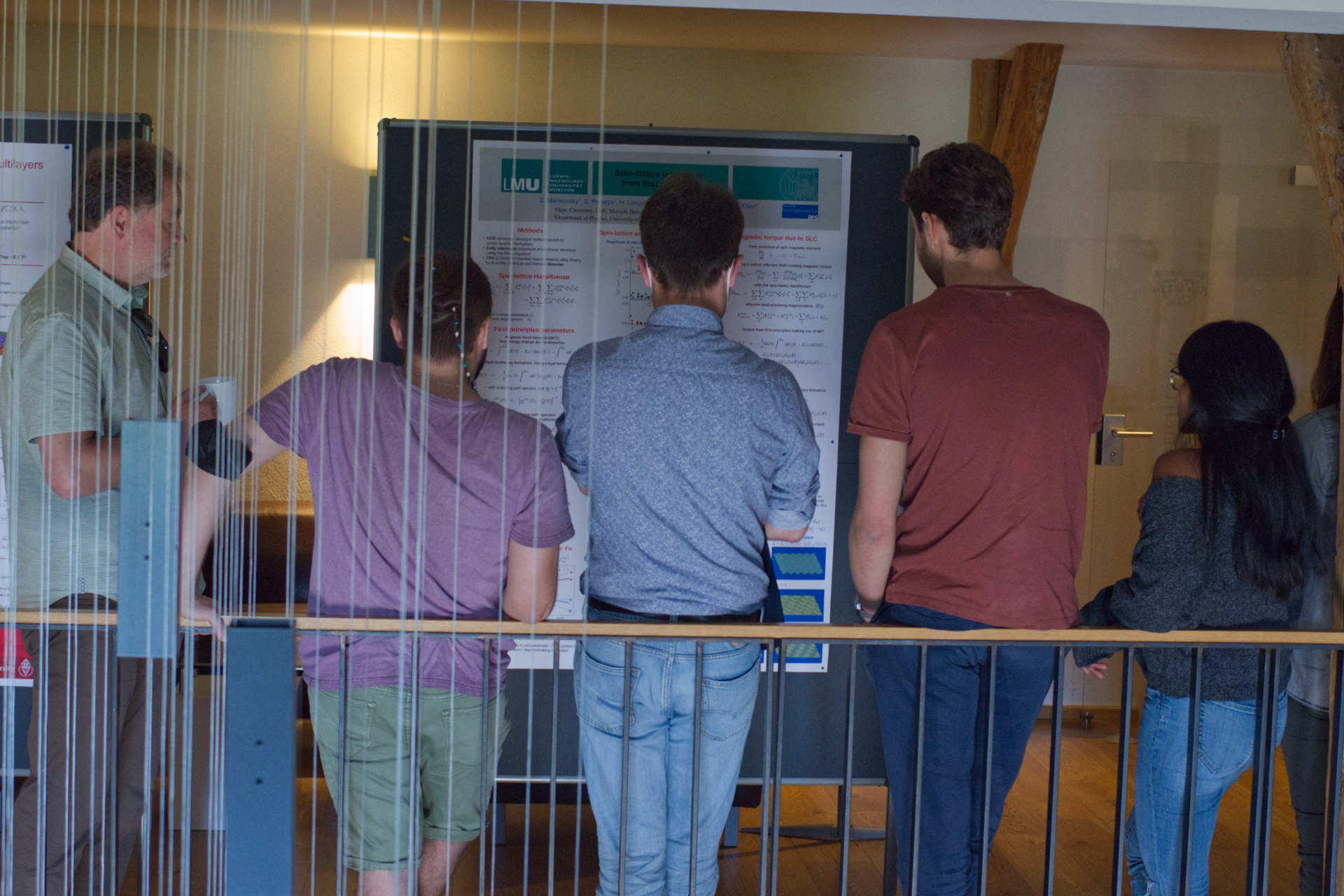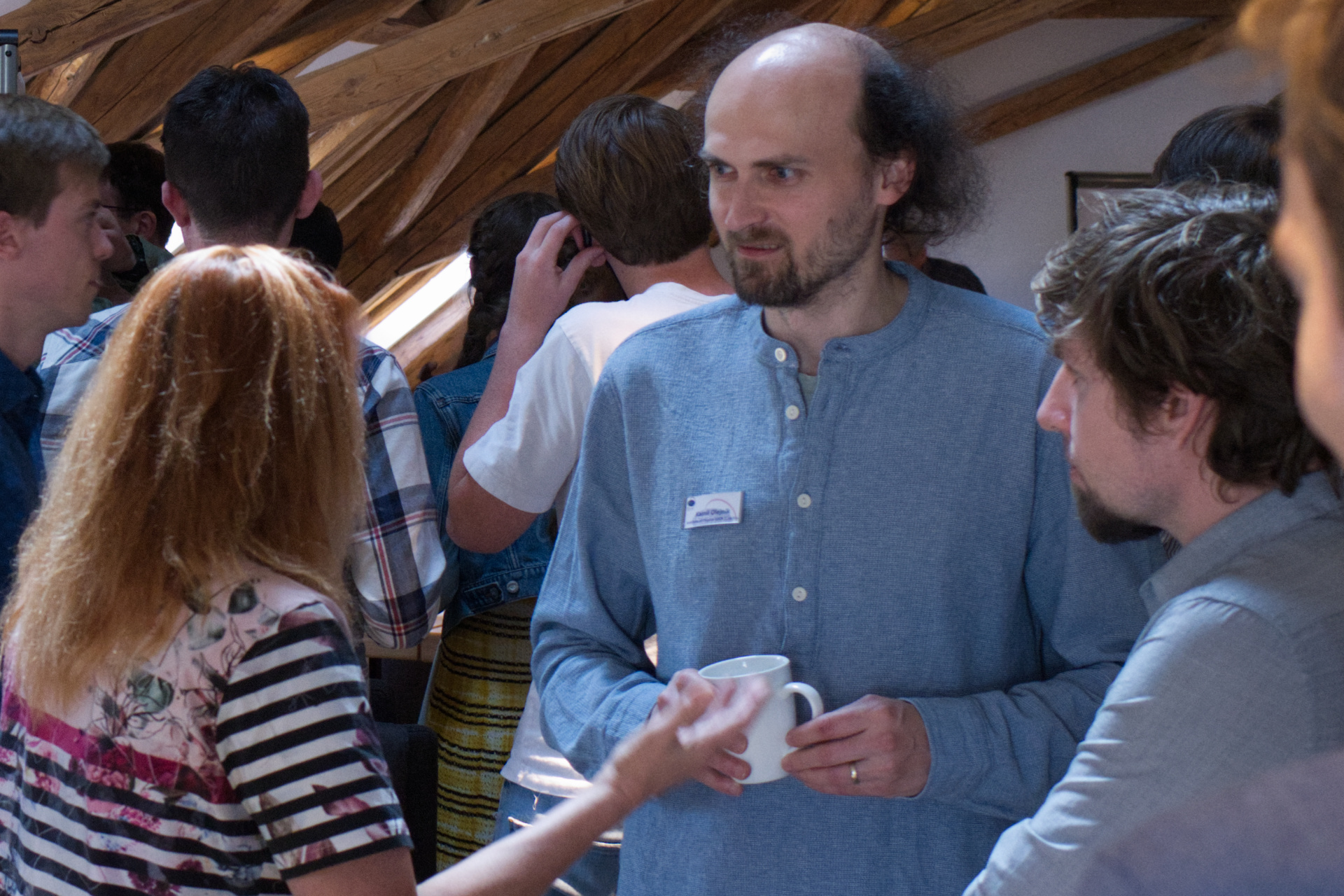Ultrafast Antiferromagnetic Writing
Workshop, May 9th - 10th 2022
While recent developments in photonics enable nearly lossless data transfer with speeds exceeding 1 Tb/s, current magnetic data storage cannot keep up with these data-flow rates nor decrease energy dissipations. Consequently, already now data centres are becoming the biggest consumers of electricity world-wide. Antiferromagnets represent a highly-promising playground for the quest for the fastest and the least-dissipative mechanism of data storage. However, in thermodynamic equilibrium, the energy of interaction of a magnetic field with the antiferromagnetic Néel vector is zero. Despite the 60-year long search for thermodynamic conjugates to the antiferromagnetic order parameter, efficient means to control antiferromagnetism are still being pursued. It is the main reason that hampers applications of antiferromagnets and further development of antiferromagnetic spintronics, magnonics and data storage, in particular.
Although many experimental and theoretical studies make us believe that ultrafast writing of bits in antiferromagnets at THz rates must be possible, such an ultrafast writing has never been demonstrated in antiferromagnetic media and the highest frequency of rewriting of magnetic bits (100 GHz) belongs to ferrimagnets. The landmark of 1 THz remains to be a monumental challenge.
The goal of the workshop is to bring together experts in ultrafast switching of antiferromagnetism, review the state-of-the-art, discuss the present challenges, define short- as well as long-term goals in the field with the ultimate goal to initiate a breakthrough towards the fastest ever and least dissipative writing of magnetic bits.
This workshop is organized by SPICE as part of the Gutenberg International Conference Center (GICC) at Johannes Gutenberg University Mainz (JGU). The GICC is funded through the German Research Foundation’s (DFG) university allowance in the Excellence Strategy program and aims at fostering JGU as a national and international research hub. By organizing regular conferences and workshops in fields of excellent JGU research, the GICC provides a platform to build interest networks and collaborations – to promote exchange and dialog among academics and research groups from all over the world.
Organizers
Tomáš Jungwirth, Institute of Physics ASCR, Prague
Alexandra Kalashnikova, Ioffe institute, Saint Petersburg (inactive as of Feb. 24 2022)*
Aleksei V. Kimel, Radboud University, Nijmegen
Thomas Metzger, Radboud University, Nijmegen
Yuriy Mokrousov, Johannes Gutenberg-University Mainz
Invited Speakers
| Dmytro Afanasiev, University of Regensburg Yannic Behovits, FU Berlin Davide Bossini, University of Konstanz Oksana Chubykalo-Fesenko, CSIC Ankit Disa, MPSD Olena Gomonay, JGU Daria Gorelova, University of Hamburg Andrey Kirilyuk, Radboud University Reinoud Lavrijsen, Eindhoven University of Technology |
Johan Mentink, Radboud University Rostislav Mikhaylovskiy, Lancaster University Uli Nowak, University of Konstanz Kamil Olejnik, Institute of Physics ASCR Peter Oppeneer, Uppsala University Sangeeta Sharma, Max-Born-Institute Christian Tzschaschel, Harvard Yoav William Windsor, TU Berlin Joerg Wunderlich, University of Regensburg |
* Due to a general ban on Russian institutions, Dr. Kalashnikova is no longer an active member of the organizer committee as of Feb. 24 2022. This institutional ban is not reflective on individuals.





